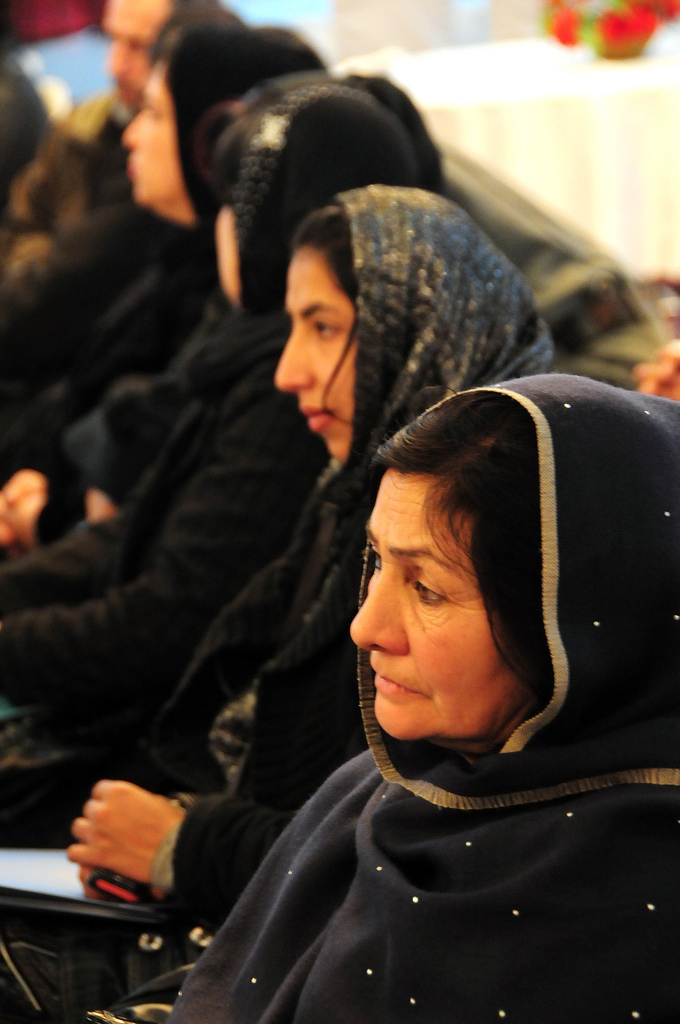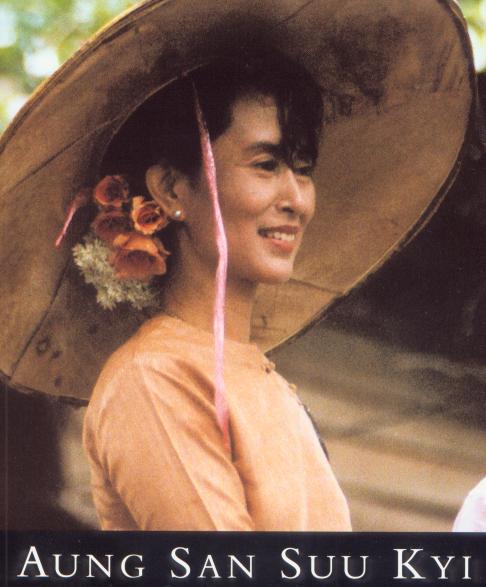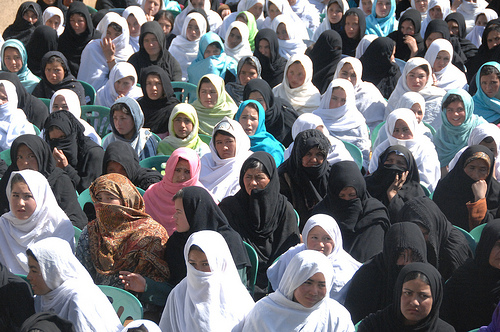Posted at 18:40h in
General by admin Back in the old days, education in Cambodia was provided by traditional Buddhist temples and it had been maintained as a male privilege. After the ups and downs that the country has gone through during the colonial period and the reign of the Khmer Rouge, the current democratic Cambodian government eventually came to power in 1979 it had to reconstruct the entire education system as guaranteed in the constitution – free compulsory education should be provided to all citizens for nine years, and the universal right to basic quality education should be upheld. The implementation of such rights, however, has always been difficult. Problems that the Cambodian education system faces include: inadequate government funding (a mere 2.1% of GDP; ranked 153
th in world), a severe shortage of qualified teachers, poor morale due to low wage levels and lack of appropriate teaching materials. Enrollment rate remains unsatisfactory especially in rural areas as children usually have to stay at home and help their families in the fields. As a result, low literacy rates still persist: only around 70% of the population can read and write, with the percentage of literate women significant lower than that of literate men (CIA world factbook, 2012). I many Southeast Asian cultures, where boys are perceived as the primary breadwinner, the priority of opportunities for schooling and training goes to boys. Many girls, due to a lack of education and as a result a lack of alternative means to sustain their livelihood, are forced into involuntary labor and even prostitution. According to UNICEF (2005), an estimated 30 % of sex workers in Cambodia are under 18 years of age, having less than three years of basic education and little or no vocational skills. The link between the lack of education and girls’ vulnerability is therefore, crystal clear.
 Education plays a critical role in the reconstruction and national development plan of the post-Taliban Afghanistan, as it is possibly one of the most effective way to solve the many prevalent problems within the country. Before the fall of the Taliban, the formal education system in Afghanistan had been in complete disarray as there were no national authorities that monitor the distribution of educational funds and program implementation. The non-formal sector of education, as operated by organizations such as UNICEF, used to be a good supplement to the underperforming formal sector and once accounted for more than three quarters of schools in Afghanistan. However, the situation changed drastically after the Taliban issued its 1995 edict prohibiting the education of females in the areas under its control, and most humanitarian relief agencies had to suspend their assistance to the education programs throughout Afghanistan. As a result, even though theoretically compulsory education is provided to children aged from 7 to 13, only a mere 22 percent of the country's school-aged children were enrolled in schools by the end of the twentieth century. Girls, among all young persons, were the most affected due to
Education plays a critical role in the reconstruction and national development plan of the post-Taliban Afghanistan, as it is possibly one of the most effective way to solve the many prevalent problems within the country. Before the fall of the Taliban, the formal education system in Afghanistan had been in complete disarray as there were no national authorities that monitor the distribution of educational funds and program implementation. The non-formal sector of education, as operated by organizations such as UNICEF, used to be a good supplement to the underperforming formal sector and once accounted for more than three quarters of schools in Afghanistan. However, the situation changed drastically after the Taliban issued its 1995 edict prohibiting the education of females in the areas under its control, and most humanitarian relief agencies had to suspend their assistance to the education programs throughout Afghanistan. As a result, even though theoretically compulsory education is provided to children aged from 7 to 13, only a mere 22 percent of the country's school-aged children were enrolled in schools by the end of the twentieth century. Girls, among all young persons, were the most affected due to



 “In societies where men are truly confident of their own worth, women are not merely tolerated but valued." - Aung San Suu Kyi, 1995 Like Mahatma Gandhi in India and Nelson Mandela in South Africa, Aung San Suu Kyi has become an international symbol of democracy and non-violence resistance. Being placed under house arrest for 15 out of the past 21 years, Ms Suu Kyi has finally sworn to the oath and she is now the leader of the opposition in the Burmese parliament after she led her party, National League for Democracy, to a landslide victory in the 2012 by-election. It is seen as a historical moment as the Cambodia Foreign Minister points out “So that people in Myanmar can enjoy better opportunities to realize their aspirations for peace, national reconciliation, democracy and national development”. At Wedu we believe that not only Ms Suu Kyi’s victory is significant to Myanmar’s political development, it is indeed also a sign of women’s empowerment within the country. Traditionally, gender inequalities have been prevalent in the Burmese society and it is still an existing problem today. In 2011, the Human Development Index for Myanmar was 0.483 and under the Gender Inequality Index, the country’s score is 0.492 (96 out of 146 countries). This is particularly true
“In societies where men are truly confident of their own worth, women are not merely tolerated but valued." - Aung San Suu Kyi, 1995 Like Mahatma Gandhi in India and Nelson Mandela in South Africa, Aung San Suu Kyi has become an international symbol of democracy and non-violence resistance. Being placed under house arrest for 15 out of the past 21 years, Ms Suu Kyi has finally sworn to the oath and she is now the leader of the opposition in the Burmese parliament after she led her party, National League for Democracy, to a landslide victory in the 2012 by-election. It is seen as a historical moment as the Cambodia Foreign Minister points out “So that people in Myanmar can enjoy better opportunities to realize their aspirations for peace, national reconciliation, democracy and national development”. At Wedu we believe that not only Ms Suu Kyi’s victory is significant to Myanmar’s political development, it is indeed also a sign of women’s empowerment within the country. Traditionally, gender inequalities have been prevalent in the Burmese society and it is still an existing problem today. In 2011, the Human Development Index for Myanmar was 0.483 and under the Gender Inequality Index, the country’s score is 0.492 (96 out of 146 countries). This is particularly true
 It is always interesting to see how much talking there is about gender equality around 8 March, International Women’s Day (IWD), and how quickly public interest moves on. This post aims to be a reminder, one month after the IWD of how important the theme of this year’s IWD is. The theme of IWD 2012 is “connecting girls, inspiring future”. In fact, investments in women and girls have been a top priority issue in the development agenda in recent decade. It is not only out of ethical concerns; more importantly, it is fundamental to sustainable economic growth. The World Bank calls investing in women “smart economies”; the United Nations regards women as the “most valuable untapped natural resource”, and the OECD suggests that none of the Millennium Development Goals could be achieved unless both men and women participate equally. Women are an indispensable part of development, and the most effective way to open up the gateway for participation is through education. Indeed, education helps building women’s various skills and developing greater confidence within them to lead; it also improves women’s health, financial independence and decision-making ability which eventually bring benefits to their families and even the entire community. This is, according to the United Nations, the “multiplier effects” that women’s education generates; and thus education is the way to connect girls from all over the world to inspire the future of our world.
It is always interesting to see how much talking there is about gender equality around 8 March, International Women’s Day (IWD), and how quickly public interest moves on. This post aims to be a reminder, one month after the IWD of how important the theme of this year’s IWD is. The theme of IWD 2012 is “connecting girls, inspiring future”. In fact, investments in women and girls have been a top priority issue in the development agenda in recent decade. It is not only out of ethical concerns; more importantly, it is fundamental to sustainable economic growth. The World Bank calls investing in women “smart economies”; the United Nations regards women as the “most valuable untapped natural resource”, and the OECD suggests that none of the Millennium Development Goals could be achieved unless both men and women participate equally. Women are an indispensable part of development, and the most effective way to open up the gateway for participation is through education. Indeed, education helps building women’s various skills and developing greater confidence within them to lead; it also improves women’s health, financial independence and decision-making ability which eventually bring benefits to their families and even the entire community. This is, according to the United Nations, the “multiplier effects” that women’s education generates; and thus education is the way to connect girls from all over the world to inspire the future of our world.